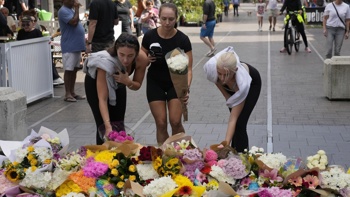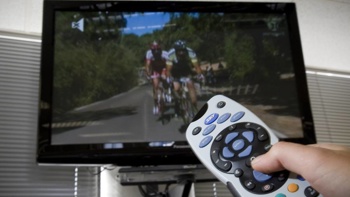
When so many men seem to finally care about sexual harassment and abuse now the whole sordid state of it might actually have an effect on the lives of people like them.
I am fed up listening to hand-wringing about #MeToo and the role the media plays or should play in discussions of sexual violence.
Not to mention the hypocrisy of that hand-wringing when the same people apparently most concerned about "trial by media" are happy to engage in it if sexual assault claims are badly handled by a political party they don't like.
Incessant cries to "follow the right channels" tell women loud and clear that men have not been paying attention.
If you had, you'd know how badly and routinely those systems fail.
You'd know women who went to the police after being raped by a guy they went home with and were told "chalk it up to experience".
You'd know women who went to the police but were never able to bring the case to trial because it was "he said, she said" and there was no proof.
You'd know women who were lucky enough to get a sympathetic officer, but were told their claims wouldn't stick.
You'd know women who did manage to get their case before a judge and all they got out of it was their sexual history being used as a weapon, and no justice.
You'd realise that when women have tried to talk about abuse they've suffered, they've been disbelieved, sometimes even by the people who love them most.
I can think of at least three women I know who have told their friends they've been raped or assaulted by a man in their social circles and those men have faced no consequences.
It's laughable to imagine those men ending up in jail when it hasn't even dented their reputation.
Even when those women were believed, it's easier for people to sweep the problem under the carpet than take a popular man to task.
If you'd been reading along as the #MeToo movement unfolded and have been paying attention, you would have noticed how many women's lives were derailed because powerful men didn't see them as fully human.
How many careers were ended, how much time and energy had to be diverted to recovering from abuse rather than living a life.
Where's your sympathy for those women - I can't find it among your concern for the as-yet non-existent men who may or may not have their lives destroyed when people find out what they've done.
If you'd been paying even the slightest amount of attention to women's lives you'd understand that what's happening in the media at the moment isn't scary, it's a relief.
What a relief to be heard, to have these stories sought out en masse, to shine a light on the pervasive sickness in our culture.
Isn't that what journalism is for? To shine a light where systems have failed, where things have been covered up, where the downtrodden have been ignored and silenced?
How cynical and insulting to suggest it's a media witch-hunt to listen to women's stories.
As if tackling a sensitive issue means throwing away all journalistic integrity, as if those who are trying to expose one of the most rotten parts of our society lack the nuance, judgment and ability to do it right.
When the Herald ran our #BetterThanThis campaign last year - remember when no one used to touch domestic violence either? - sexual violence was firmly rooted in so many of the stories.
When five young men in Opotiki were charged with statutory rape, our reporting sensitively tackled the inherent difficulty of what consent means when the person giving it is underage.
Similarly, we talked about what it means to see a sport star continue to flourish in his field after he was acquitted of rape following an ugly trial.
The reporters tasked with those stories explored the nuance of the cases, which good reporting always strives to.
And when we picked up the story broken by Newsroom on Russell McVeagh, reporting in the Herald on Sunday helped shape a vital conversation about what exactly is going on in the legal profession.
That reporting led to another front-page article uncovering disturbing behaviour at Otago University's law camp.
Journalists can and have been tackling these issues for years, a hashtag just means we'll see more of it.
Take your Radio, Podcasts and Music with you









